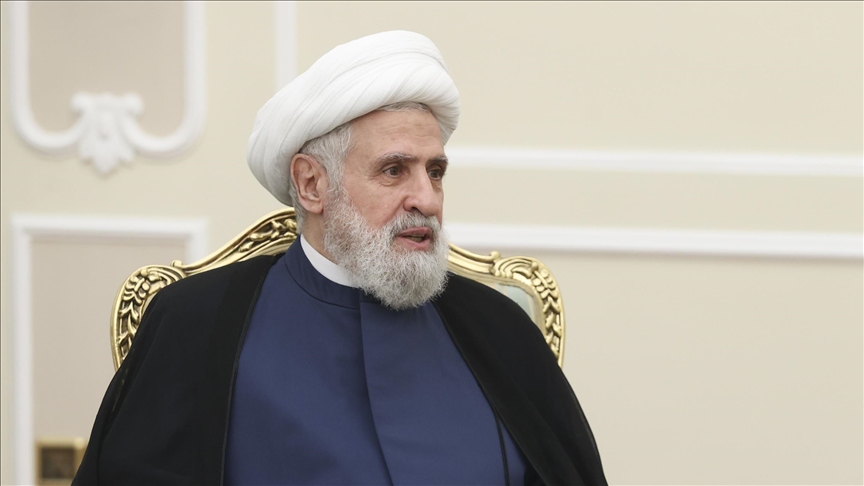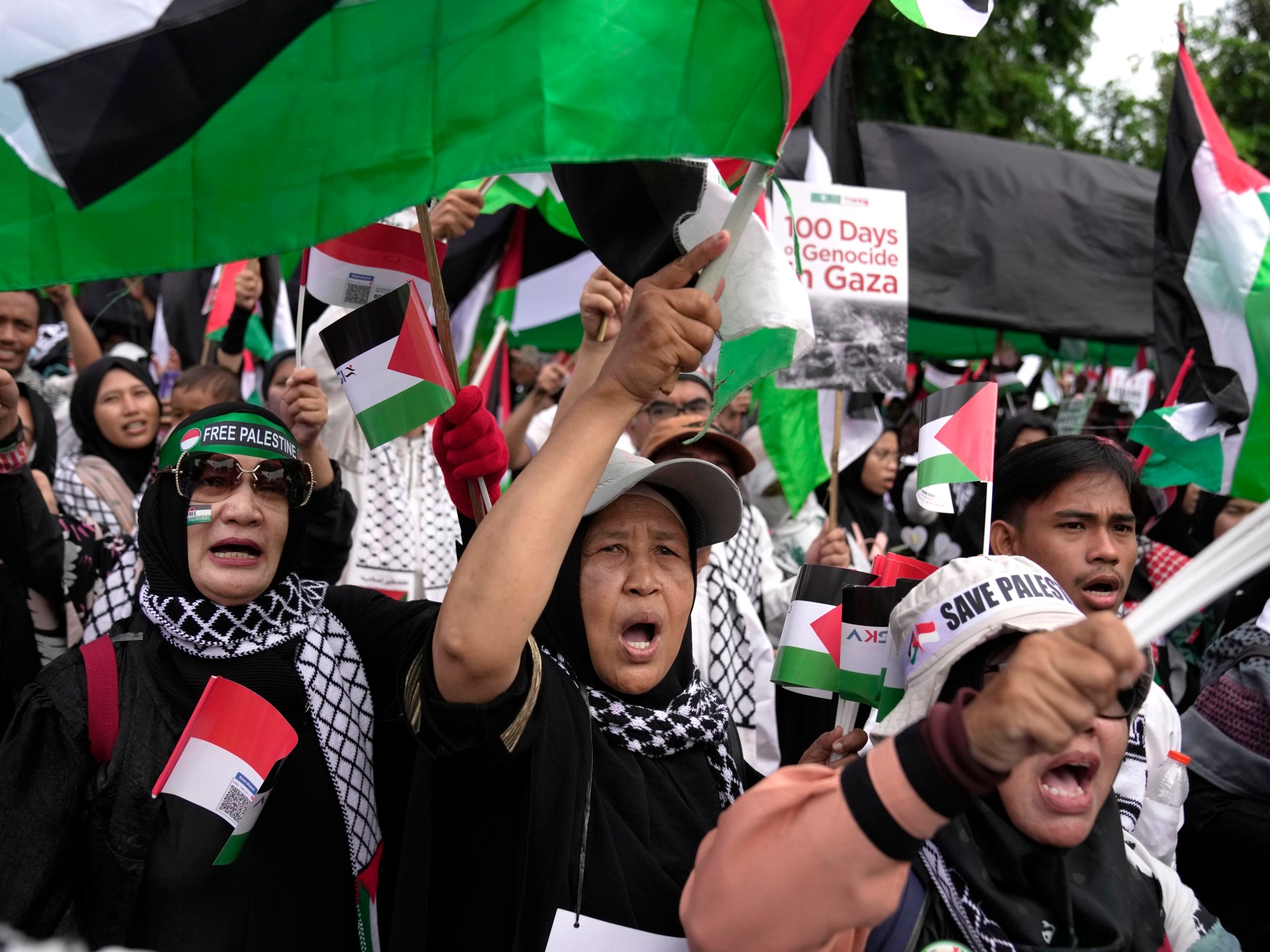Western Islamophobia targets Turkey
More recently, the differing approaches to dealing with the issue of weapons of mass destruction (WMD) have again shown that Muslim states will be targeted and dealt with in a coercive manner, while other states will be accommodated and brought into the mainstream through more pleasant routes. That is why even as the US continues its hysteria against an assumption – yet to be proven – that Iraq has WMD, it has adopted a different tack against North Korea even though the latter has made its confessions on this score. So, while war is America’s answer to dealing with Saddam Hussain, in the case of North Korea there s an effort to win them over through various carrots. Of course, the US also knows its limitations with regard to using preemptive military action against North Korea — given that the latter has the
capability to militarily destabilise the region before an American military attack could achieve its ends.
And so suddenly the US is actually trying to distinguish between Iraq perhaps having WMD and North Korea having such a capability. Of course, again, Israel does not even figure in all this debate on WMD, despite its refusal to accept any of the WMD elimination treaties. What one can see rather clearly now is the effort to draw lines of polarisation – of the "other" in terms of Muslim states.
The clarity of this effort to separate the Islamic world from the West – which Europe thought to put squarely on US shoulders — has most recently been reflected in the statement of Mr Giscard d’Estaing, the former president of France, who heads Europe’s Constitutional Convention. While officially the EU has been evasive in stating what it really thinks regarding Turkey’s membership bid for the EU, Mr d’Estaing broke from the official position and declared that Turkey was not a European country and if it was allowed to join the EU that would be "the end of the European Union". In an interview with the French daily Le Monde, published on November 8 (and reported in the Herald Tribune, November 9-10), he stated that Turkey had a Muslim population and a high birth rate and had "a different culture, a different approach, a different way of life." As he put it, "Its capital is not in Europe, 95 percent of its population live outside Europe, it is not a European country." And, he added, if Turkey were allowed in, other Middle Eastern and North African states would also clamour to join!
Of course, when NATO was formed, Turkey was seen as the southern periphery of Europe and therefore a necessary partner in the alliance to defend Europe!
Its Islamic heritage was never an issue then! But then there has always been a Christian identity of Europe, despite the facade of "secularism". And now it has
come to the fore. Despite Turkey maintaining a secular political identity enshrined in its constitution, and despite Turkey having adjusted its laws and polity to European conditionalities, it cannot rid itself of its Muslim legacy and reality of being as far as the Europeans are concerned. That is why Turkey has seen its neighbour Greece become a member of the EU much earlier while Turkey was still an applicant. And that is why the Eastern European states, all much newer applicants have also found acceptance within the expanded EU but Turkey’s application for membership
continues to be kept pending. And that is why, despite the attempted genocide of the Turkish Cypriots by the Greek Cypriots through their Enosis agenda, the
EU will give Greek Cyprus membership of the EU without the issue of Turkish Cyprus having been resolved. The attitude towards Turkey – which d’Estaing may have voiced
openly but which many European states hold covertly — also reveals the continuing trauma of the crusades that haunts Europe.
So it is out now. Turkey’s vast population, all Muslims, cannot be allowed into the EU. The boundary of Europe has less to do with geography and more to do
with religion it would appear! But for Turkey this should be the beginning of a new perspective on its own global and regional role. It is a great country with a rich Islamic heritage, which has been the first line of defence for the Muslim world in purely physical terms. So it is time Turkey accepted its leadership role in the Muslim world – it can be a major power in Asia and lead by its progressive example. Whereas in Europe it would have always had to bend to the will of the Christian majority, in Asia it is a leader and once it decides to assert its Asian
identity, the region will benefit collectively as will Turkey itself.
Meanwhile, the layers of duplicity are forcefully being peeled off the US and Europe. It’s antagonism towards the Islamic world – except when the latter is agreeable to being compliant – and Islam is becoming ever more overt. It is not Islam that is a threat to globalisation, since Islam itself is global in its being and encompasses within its fold many civilisations and cultures – from Africa to Asia and even into Latin America (Surinam, a member of the OIC from that part of the world). Rather, it is the tunnel vision of the US and Europe which will not accept and learn to live with the reality of global diversity on a basis of equity.
The problem for the Muslim world is that, despite all these signals, there is an inability to evolve some minimal level of common understanding in substantive
economic and political terms. Yet there is a dire need for that right now. Here countries like Pakistan and Turkey, which have more in common than is realised, need to take a lead. While the Arab world is held hostage to its economic and
military dependencies on the US and Europe, other Muslim states need to become more proactive to counter the new and insidious threat emanating from an ever
more intolerant Western Christian world. To deal with this threat there is a need to accept the ground realities of the growing global polarisation on the basis of religion; there is also a need to renew our own societies from within even as we renew our
linkages with each other.
It is indeed an irony that while the West yells hysterically about a so-called threat to globalisation from Islamism, it is the West itself which is unable to adjust to the global reality of diversity. It is also the narrow vision and coercive responses to
perceived threats that are making the world ever more unsafe for everyone. Military options and demonisation of those with a differing viewpoint will certainly not make the world a safer place for any of us – nor will it lead to a successful conclusion of the war on terrorism. In fact, so far such policies have only exacerbated the threat to the civilised world — of which a major part identifies with the religion of Islam.



